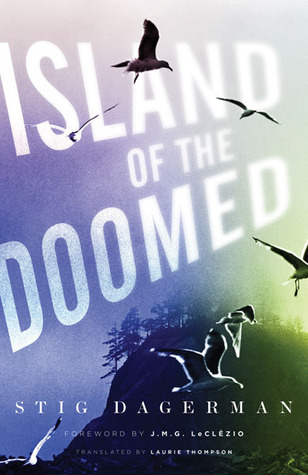What do you think?
Rate this book


352 pages, Paperback
First published January 1, 1946
Was he alone in noticing that the nights no longer wafted down from some roof up above, or that daylight no longer surged in like white gas filling the black balloon? No, the shifts were violent and unexpected: candles lit to produce an apparently reliable flame, and then suddenly snuffed out – but the hand doing the snuffing was never glimpsed. Was he alone on this hurtling planet, this sand-strewn marble plunging down into the cosmic well? Transparent strata of air green at the edges, mauve streaks, deep-red flames flashing past and driving wedges like elephant tusks into one’s own trembling being, which itself was constantly changing colour, chameleon-like, in the constant flux. Blue bands broken brutally asunder by exploding formations of violently yellow swallows’ wings. Fathomless darkness, the same air, but the colour itself must have a consistency enabling it to check the speed of descent. The fall through the night was no less terrifying, but now the pace was slower. Swarms of sparks rose slowly in the form of stars encircling the island and were visible far below in a grey, milky layer where white rivulets trickled in as if from some hidden giant udder.
…it’s like a bottomless well, and you lean further and further out in the hope of seeing water, of seeing something tangible instead of just this terrifying emptiness, and in the end you lean so far out, you fall, and then you fall and fall and fall for the whole of your life without experiencing anything but this endless falling and you die while you’re still falling and although you haven’t come to any sign of a bottom you’re annihilated while you’re still falling and gobbled up by the darkness after your pitiful failed effort at filling it with meaning, the meaning that comes from looking for a bottom.